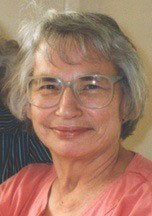Obituary

Elizabeth Bott Spillius. Photo: Melanie Klein Trust
Elizabeth Bott Spillius, a distinguished psychoanalyst and anthropologist who, through a chance friendship with Queen Sālote, made a valuable contribution to studies of Tongan society, has died in London on July 4 at the age of 92 years, after an illness.
As an academic and writer, Elizabeth was more widely known for her work in psychoanalysis. A Distinguished Fellow of the British Psychoanalytical Society, Elizabeth Bott Spillius was recognized as one of the world’s foremost Klein scholars and admired for the wealth of books and papers she has produced over many years. Her first research was in social networks and she wrote (as Elizabeth Bott) an influential book called Family and Social Network, based on her doctoral research in London.
Tongan connection
However, it was during a chance visit to Tonga in 1958 that she met Queen Sālote, and their friendship over the following two years led to the writing of an important book on Tonga, Tongan Society at the time of Captain Cook’s visits: Discussions with HM Queen Sālote Tupou, by Elizabeth Bott with the assistance of Tavi.
Elizabeth’s son, Alex Spillius, diplomatic correspondent for the London Daily Telegraph, has written about his family’s unusual connection with the Pacific kingdom since 1958.
“The monarch in those days was Queen Sālote, who captured hearts in Britain at the 1953 Coronation. … Five years later my parents found themselves living in Tonga and drawn to Sālote’s irresistible personality. They hit it off. My father, commissioned by the World Health Organisation, was overseeing the first piped water system on the islands… My mother Elizabeth, an anthropologist, went along for the ride but became absorbed by Tonga’s intricate feudal system. She wrote a book that became the authority on the subject.
“As a mark of their acceptance, they were given Tongan names by the queen: Kolofau for dad, and Nua for mum, by which Tongans still refer to them. Upon my sister’s birth in the capital Nuku’alofa in 1960, the queen decreed – with a smile – that she be named Sisifa, no matter what her parents had in mind. After they returned to London, Sālote shrewdly decided that her rather mischievous teenage grandson Taufa – later King George V – would benefit from a watchful eye as he attended school, Sandhurst and Oxford. Hence his arrival at the age of 16 in my parents’ Bayswater flat in 1963, and my father’s appointment as guardian.”
Tongan Society
When the book Tongan Society… was first published by the Polynesian Society in 1982, Ellizabeth Bott stated that she had originally written the manuscript with intentions of publication as a field report for Queen Sālote and the Tonga Traditions Committee of the Government of Tonga. The manuscript was left at the Palace Office in Nuku’alofa for 15 years before it was published with the help of Tavi.
The aim of paper was to describe the social and political organisation of the Kingdom of Tonga as it was when Captain Cook made his visits in the 1770s. Bott notes that Cook was “a careful observer and fortunately for us he wrote down everything he saw, even when he did not understand what it meant.”
The book describes Cook’s experience of Tongan society with additional explanations and interpretations given by Queen Sālote.
It also gives a general account of principles of Tongan political and social organization in the 18th century based on various sources, and records much of the legends, history and genealogies of the early Kanokupolu chiefs that had not been documented before.
Bott noted in 1982 that while Tongan Society has, of course, changed radically since the 18th Century and was much changed by local wars and European contact, “but the principles of rank and kinship in the modern period are congruent with the descriptions by Cook and Mariner.”
Today the Tongan genealogies (tohi hohoko) that are carefully recorded in her work are invaluable to Tongan families and researchers alike.
Funeral
Born in Canada in 1924, Elizabeth joined the London School of Economics from the US in the late 1940s, moving a few years later to the Tavistock Institute. She was one of very few notable women theorists and practitioners who led the early days in studies of organizational development.
The funeral will be held on Saturday 23 July 2016 at 11:00 a.m. at the Golders Green Crematorium in London, UK.
- Obituary by Mary Lyn Fonua



